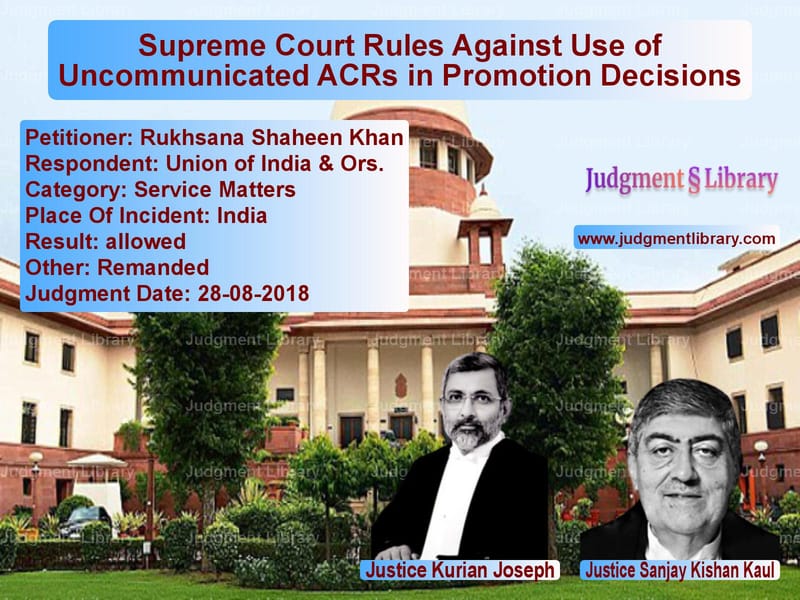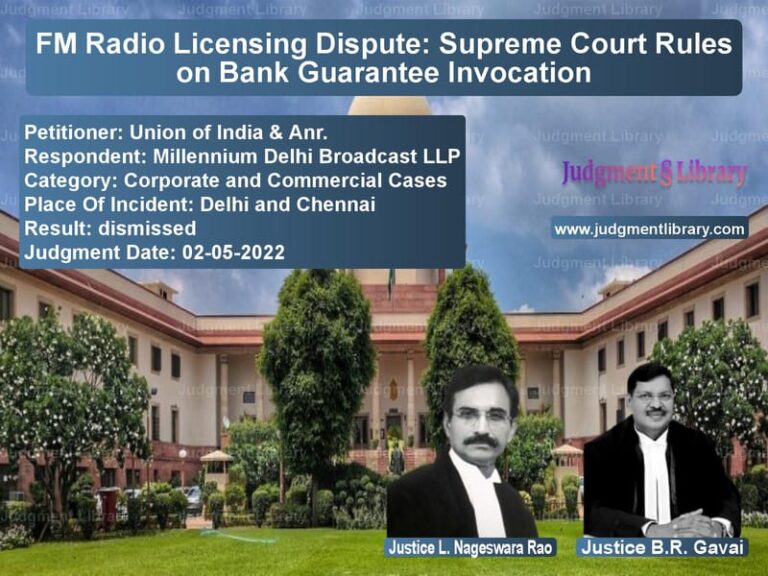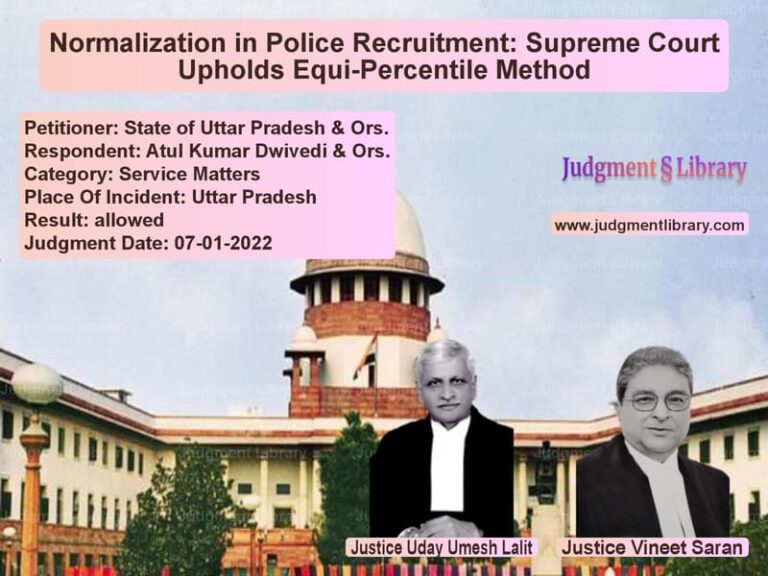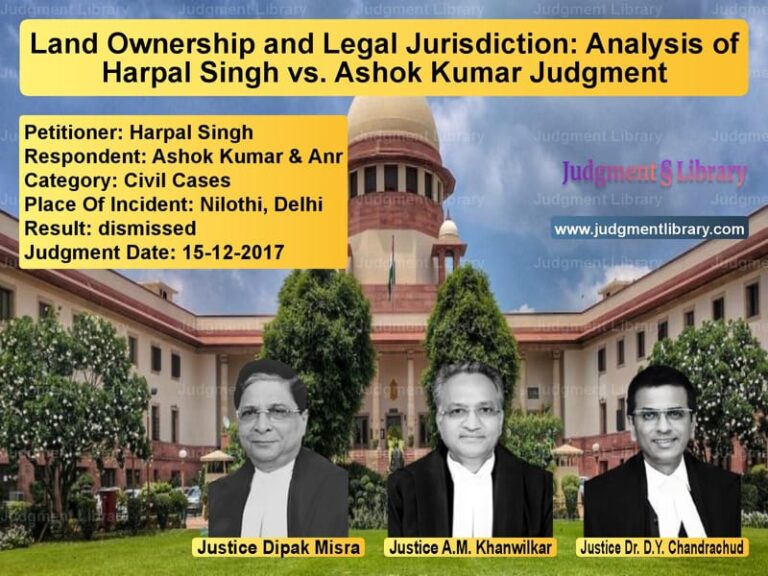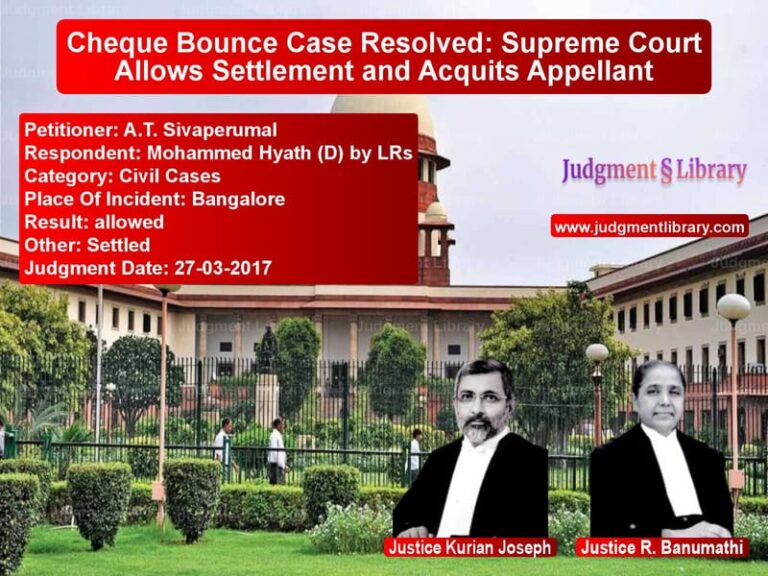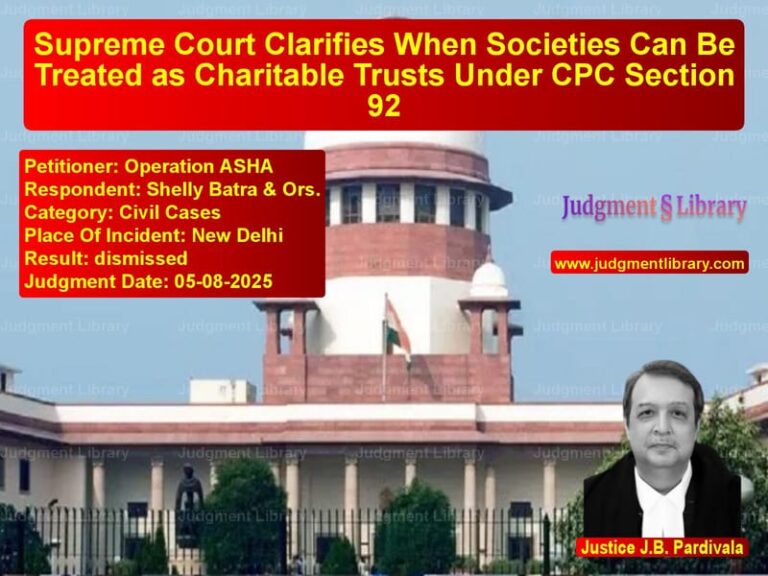Supreme Court Rules Against Use of Uncommunicated ACRs in Promotion Decisions
The Supreme Court of India, in the case of Rukhsana Shaheen Khan v. Union of India & Ors., ruled that uncommunicated Annual Confidential Reports (ACRs) with adverse remarks cannot be considered in promotion decisions. The judgment, delivered on August 28, 2018, by a bench comprising Justice Kurian Joseph and Justice Sanjay Kishan Kaul, reaffirmed that employees should not be evaluated based on ACRs that were not disclosed to them.
Background of the Case
The appellant, Rukhsana Shaheen Khan, was a government employee whose promotion was denied due to adverse remarks in her Annual Confidential Reports. However, these adverse remarks were not communicated to her at the time of assessment. She challenged this decision before the courts, arguing that such reliance on undisclosed ACRs violated principles of natural justice.
The matter was initially heard by lower courts, which ruled against her. Dissatisfied with the decision, she approached the Supreme Court.
Petitioner’s (Appellant’s) Arguments
The appellant, through her legal counsel, presented the following arguments:
- Her denial of promotion was based on adverse remarks in ACRs that were never communicated to her.
- It was a violation of principles of natural justice as she was denied an opportunity to contest or improve her performance based on the remarks.
- The Supreme Court had already settled this issue in Sukhdev Singh v. Union of India, reported in (2013) 9 SCC 566, where it was held that uncommunicated ACRs cannot be relied upon.
- Reliance on undisclosed ACRs creates an arbitrary system where employees are unaware of the basis for their evaluations.
Respondents’ (Union of India’s) Arguments
The Union of India, opposing the appeal, contended:
- The ACRs were prepared as part of an internal evaluation system and were used in good faith.
- There was no malafide intent in the non-communication of the adverse remarks.
- The government had a duty to ensure that only meritorious candidates were promoted, and the ACRs were part of this assessment.
- The appellant had access to alternative grievance redressal mechanisms but had failed to utilize them.
Supreme Court’s Observations
The Supreme Court, after hearing both parties, made the following critical observations:
- The 2013 judgment in Sukhdev Singh had already established that uncommunicated adverse ACRs could not be considered in promotion decisions.
- The principles of natural justice require that an employee be made aware of adverse remarks so they can respond or improve performance.
- The non-disclosure of the ACRs violated the appellant’s right to a fair assessment.
- Employees must be afforded an opportunity to contest their performance reviews before any adverse action is taken based on them.
Final Judgment
The Supreme Court ruled in favor of the appellant and issued the following directives:
- The uncommunicated ACRs must be ignored in reconsidering the appellant’s promotion.
- The competent authority was directed to conduct a fresh review of the appellant’s promotion case, ensuring that only communicated ACRs were considered.
- The appellant must be given an opportunity to present her case before a final decision is made.
- The entire review process should be completed within two months from the date of the judgment.
Impact of the Judgment
This ruling has significant implications for government employees and public sector promotions:
- Strengthening Employee Rights: The judgment reinforces that employees have the right to know and contest adverse performance reviews.
- Reinforcement of Natural Justice: The ruling ensures that no employee is unfairly denied promotion due to undisclosed evaluations.
- Guidance for Government Departments: The decision sets a precedent that ACRs must be communicated before being used for any negative employment action.
Conclusion
The Supreme Court’s decision in Rukhsana Shaheen Khan v. Union of India & Ors. is a landmark ruling that upholds fairness in government employment. By prohibiting reliance on uncommunicated ACRs in promotion decisions, the judgment ensures transparency and justice in career advancements.
Petitioner Name: Rukhsana Shaheen Khan.Respondent Name: Union of India & Ors..Judgment By: Justice Kurian Joseph, Justice Sanjay Kishan Kaul.Place Of Incident: India.Judgment Date: 28-08-2018.
Don’t miss out on the full details! Download the complete judgment in PDF format below and gain valuable insights instantly!
Download Judgment: Rukhsana Shaheen Kha vs Union of India & Ors Supreme Court of India Judgment Dated 28-08-2018.pdf
Direct Downlaod Judgment: Direct downlaod this Judgment
See all petitions in Employment Disputes
See all petitions in Promotion Cases
See all petitions in Judgment by Kurian Joseph
See all petitions in Judgment by Sanjay Kishan Kaul
See all petitions in allowed
See all petitions in Remanded
See all petitions in supreme court of India judgments August 2018
See all petitions in 2018 judgments
See all posts in Service Matters Category
See all allowed petitions in Service Matters Category
See all Dismissed petitions in Service Matters Category
See all partially allowed petitions in Service Matters Category

